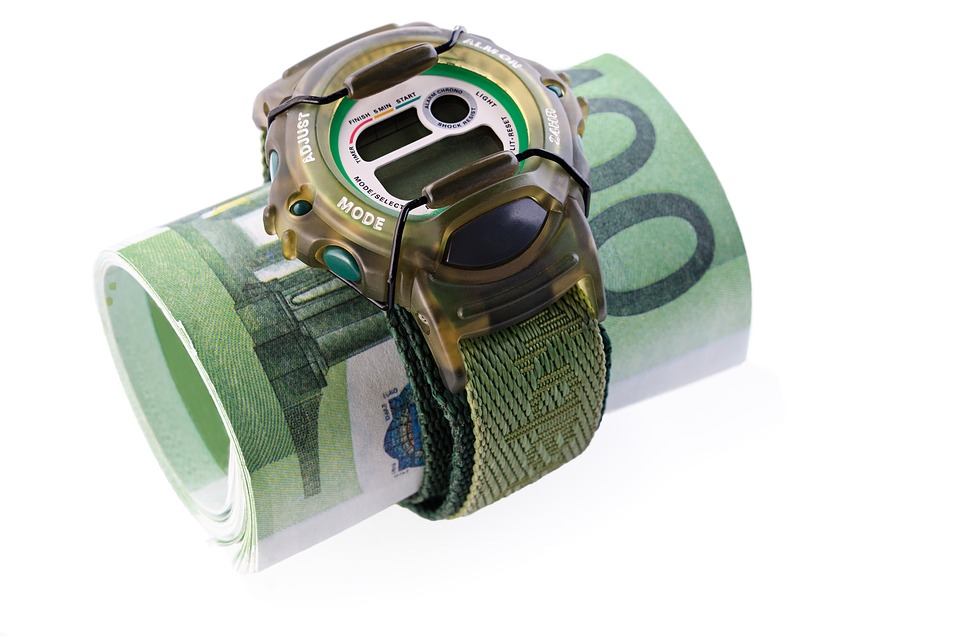Career Advice
How to Make a Strong Impression at Your First Job Interview (And Land the Offer)

Are you preparing for your first job interview and feeling nervous about making a strong impression? You’re not alone. Many job seekers struggle to stand out in their first interview and fail to secure the job they desire. In this article, we’ll provide you with essential career development tips to help you make a lasting impression and increase your chances of landing the job.
Preparation is Key
Research the Company
Before the interview, research the company’s mission, values, and products or services. This will help you understand their needs and show your interest in the company. Make sure to review their website, social media, and recent news articles to get a better understanding of their current projects and challenges.
Review the Job Description
Study the job description and requirements to understand the skills and qualifications the employer is looking for. Prepare specific examples of how your skills and experience align with the job requirements.
Practice Your Answers
Anticipate common interview questions and practice your answers. Prepare to talk about your strengths, weaknesses, and accomplishments. Consider asking a friend or family member to conduct a mock interview to help you feel more comfortable with the interview process.
Impressing the Interviewer
Make a Good First Impression
Make sure to arrive 10-15 minutes before the interview, dressed professionally and prepared with all necessary documents, such as multiple copies of your resume and a list of references. A strong first impression will set the tone for the rest of the interview.
Show Enthusiasm and Interest
Demonstrate your passion for the company and the position by asking informed questions and showing genuine interest in the role. Avoid asking generic questions that can be easily answered by doing research on the company’s website.
Body Language Matters
Good body language is essential in making a strong impression. Maintain eye contact, sit up straight, and use positive gestures to convey confidence and enthusiasm. Avoid fidgeting, crossing your arms, or leaning back, as these can give the impression that you’re disinterested or lacking confidence.
Follow-up and Follow-through
Send a Thank-you Note
Avoid waiting until the next day to send a thank-you note or email. Send it as soon as possible after the interview to show your appreciation for the interviewer’s time and reiterate your interest in the position. Make sure to include a brief summary of your qualifications and why you’re a good fit for the job.
Prepare for the Second Interview
If you’re invited for a second interview, prepare by reviewing the company’s website and researching the team or department you’ll be working with. Prepare thoughtful questions to ask during the interview and be ready to discuss specific examples of how you can contribute to the team’s success.
Conclusion
By following these essential career development tips, you’ll be well-prepared to make a strong impression at your first job interview and increase your chances of landing the job. Remember to research the company and job description, practice your answers, and make a good first impression. Show enthusiasm and interest, and don’t forget to follow up with a thank-you note and prepare for the second interview. Good luck!
FAQs
Q: What should I wear to a job interview?
A: Dress professionally in business attire that is clean and ironed. Avoid bold or flashy clothing that may distract from your qualifications.
Q: How can I prepare for common interview questions?
A: Anticipate common questions and practice your answers. Review the job description and requirements, and prepare specific examples of how your skills and experience align with the job.
Q: What if I’m asked a difficult question?
A: Take a deep breath, and don’t be afraid to ask for clarification. If you don’t know the answer, it’s okay to say “I’m not familiar with that, but I’m willing to learn.” This shows that you’re proactive and willing to adapt to new situations.
Q: What should I ask during the interview?
A: Prepare thoughtful questions that show your interest in the company and the position. Avoid asking generic questions that can be easily answered by doing research on the company’s website. Instead, ask questions that demonstrate your skills and qualifications.
Q: How long should I wait to follow up after the interview?
A: Send a thank-you note or email as soon as possible after the interview. If you’re waiting to hear back about the status of the position, consider sending a follow-up email a week or two after the interview to reiterate your interest.
Career Advice
Resume Writing for the Modern Job Market: Trends, Tips, and Best Practices

In today’s competitive job market, having a well-crafted resume is crucial for standing out from the competition. With the rise of applicant tracking systems (ATS) and social media, resume writing has undergone significant changes. In this article, we’ll explore the latest trends, tips, and best practices for writing a resume that grabs the attention of hiring managers and recruiters.
The Evolution of Resume Writing
The traditional resume format has undergone a significant transformation in recent years. With the rise of digital job boards and applicant tracking systems, hiring managers are no longer looking for a lengthy, wordy resume. Instead, they’re searching for concise, data-driven summaries that showcase an individual’s skills, experience, and achievements.
Key Components of a Modern Resume
A modern resume should include the following key components:
- Summary/Objective Statement: A brief summary of your experience, skills, and achievements that highlights your unique value proposition.
- Professional Summary: A concise overview of your work history, focusing on accomplishments and impact rather than responsibilities.
- Skills: A clear and concise list of relevant technical, language, and soft skills.
- Work Experience: A reverse-chronological list of work experience, with a focus on achievements and impact.
- Education: A summary of relevant education and certifications.
- Achievements: A section highlighting notable achievements, awards, and recognition.
Tips for Writing a Standout Resume
Here are some additional tips to help you write a standout resume:
- Tailor your resume to the job: Customize your resume for each job application, highlighting the skills and experience that match the job requirements.
- Use keywords: Use keywords from the job description to describe your skills and experience.
- Use action verbs: Use action verbs like "managed," "created," "developed," and "improved" to describe your achievements.
- Quantify your achievements: Use numbers and statistics to demonstrate the impact of your work.
- Use bullet points: Use bullet points to break up large blocks of text and highlight key information.
- Keep it concise: Keep your resume to one or two pages, depending on your level of experience.
Best Practices for Resume Writing
Here are some best practices to keep in mind when writing your resume:
- Use a clear and concise format: Use a clean and easy-to-read format with bullet points, headings, and white space to make your resume easy to scan.
- Use a professional font: Use a standard font like Arial, Calibri, or Helvetica, and avoid ornate or cursive fonts.
- Proofread: Carefully proofread your resume multiple times to catch any spelling, grammar, or punctuation errors.
- Get feedback: Ask for feedback from colleagues, mentors, or a career counselor to improve your resume.
Conclusion
In conclusion, writing a resume for the modern job market requires a strategic approach. By incorporating the latest trends, tips, and best practices, you can create a standout resume that showcases your skills, experience, and achievements. Remember to tailor your resume to the job, use keywords, action verbs, and quantifiable achievements, and proofread carefully. With these tips and best practices, you’ll be well on your way to landing your dream job.
FAQs
Q: How many pages should my resume be?
A: One or two pages, depending on your level of experience.
Q: What font should I use for my resume?
A: A standard font like Arial, Calibri, or Helvetica.
Q: How do I tailor my resume to the job?
A: Customize your resume for each job application, highlighting the skills and experience that match the job requirements.
Q: What are the most important sections to include in my resume?
A: Summary, professional summary, skills, work experience, education, and achievements.
Q: How do I get feedback on my resume?
A: Ask for feedback from colleagues, mentors, or a career counselor.
Career Advice
Level Up Your Network: How to Identify and Leverage Your Most Valuable Connections

Networking strategies for success are often overlooked in today’s fast-paced digital age. However, building and nurturing relationships with key individuals can have a significant impact on your personal and professional life. In this article, we’ll explore how to identify and leverage your most valuable connections, helping you level up your network and achieve your goals.
Understanding the Power of Networking
Networking is often seen as a necessary evil, something you must do to advance your career or build your business. However, it’s much more than that. Networking is about building relationships, sharing knowledge, and learning from others. It’s about identifying common goals and interests and working together to achieve them.
The Benefits of Networking
- Access to valuable resources and expertise
- Increased opportunities for collaboration and partnerships
- Improved professional development and skill-building
- Enhanced reputation and credibility
- Increased job and business opportunities
Identifying Your Most Valuable Connections
The first step in leveling up your network is to identify your most valuable connections. These are the people who can help you achieve your goals, provide valuable resources and expertise, and open doors to new opportunities. Here are a few ways to identify your most valuable connections:
Reflect on Your Relationships
Take some time to reflect on your relationships. Who are the people you regularly communicate with, and what value do they bring to your life and career? Are there people who consistently offer valuable advice, introductions, or support? These are likely your most valuable connections.
Look for Patterns and Trends
Look for patterns and trends in your relationships. Are there certain industries, roles, or locations that keep popping up? Are there certain skills or expertise that keep coming up in conversations? These patterns and trends can help you identify your most valuable connections.
Ask Yourself Questions
Ask yourself questions about your relationships. Who do you feel most supported by? Who do you feel most comfortable reaching out to for advice? Who do you feel most connected to? These are likely your most valuable connections.
Leveraging Your Most Valuable Connections
Once you’ve identified your most valuable connections, it’s time to start leveraging them. Here are a few ways to do so:
Communicate Regularly
Communicate regularly with your most valuable connections. This can be as simple as sending a weekly or monthly update on your progress, or as complex as scheduling regular calls or meetings.
Ask for Help and Support
Don’t be afraid to ask for help and support from your most valuable connections. Whether it’s advice on a specific challenge, an introduction to someone who can help you, or simply a listening ear, your most valuable connections are there to support you.
Offer Value in Return
Remember to offer value in return for the help and support you receive from your most valuable connections. This can be as simple as offering to help them with a project or challenge, or as complex as providing them with valuable insights or resources.
Conclusion
Leveling up your network is a critical step in achieving your personal and professional goals. By identifying and leveraging your most valuable connections, you can access valuable resources and expertise, increase opportunities for collaboration and partnerships, and enhance your reputation and credibility. Remember to communicate regularly, ask for help and support, and offer value in return. With these strategies, you’ll be well on your way to leveling up your network and achieving success.
FAQs
Q: How do I identify my most valuable connections?
A: Take some time to reflect on your relationships, look for patterns and trends, and ask yourself questions about your connections. Who do you feel most supported by? Who do you feel most comfortable reaching out to for advice? Who do you feel most connected to?
Q: How do I leverage my most valuable connections?
A: Communicate regularly with your most valuable connections, ask for help and support, and offer value in return. This can be as simple as sending a weekly or monthly update on your progress, or as complex as scheduling regular calls or meetings.
Q: What if I’m struggling to identify my most valuable connections?
A: Don’t worry! It’s normal to struggle to identify your most valuable connections. Take some time to reflect on your relationships and look for patterns and trends. You can also try asking yourself questions about your connections and seeking feedback from others.
Q: How do I maintain my network over time?
A: To maintain your network over time, make sure to communicate regularly with your most valuable connections and continue to offer value in return. You can also try to stay in touch with your connections through social media or other channels, and look for opportunities to collaborate or work together on projects.
Q: Can I have too many connections?
A: Yes, it’s possible to have too many connections. Focus on building a strong network with a small number of people who can provide value and support. Don’t spread yourself too thin by trying to maintain too many connections.
Career Advice
Building a Personal Brand: How to Showcase Your Skills and Achieve Career Success

As professionals, we all know that having the right skills is crucial for career advancement. But, having the right skills is not enough. In today’s competitive job market, it’s essential to showcase your skills and stand out from the crowd. That’s where building a personal brand comes in. In this article, we’ll explore the importance of building a personal brand, how to create a strong online presence, and how to leverage it for career success.
Why Build a Personal Brand?
A personal brand is more than just a profile on social media or a website. It’s a way to showcase your skills, expertise, and values to the world. By building a personal brand, you can:
* Stand out from the crowd and establish yourself as an expert in your field
* Showcase your skills and achievements to potential employers, clients, or partners
* Build trust and credibility with your audience
* Increase your online visibility and reach a wider audience
* Differentiate yourself from others and establish a unique identity
Creating a Strong Online Presence
To build a strong online presence, you need to create a professional website or blog. This will serve as the hub of your personal brand, showcasing your skills, portfolio, and achievements. Here are some tips to get you started:
* Choose a domain name and register it
* Select a reliable web hosting service
* Choose a theme or template that reflects your brand
* Create high-quality content, including text, images, and videos
* Optimize your website for search engines
* Engage with your audience through comments and social media
Building a Strong Social Media Presence
Social media is a crucial part of building a personal brand. It’s a way to connect with your audience, share your content, and promote your work. Here are some tips to build a strong social media presence:
* Choose the right social media platforms for your industry or niche
* Create a profile with a professional avatar and bio
* Share high-quality content, including text, images, and videos
* Engage with your audience through comments, likes, and shares
* Monitor your analytics to track your performance and adjust your strategy
Leveraging Your Personal Brand for Career Success
Once you’ve built a strong online presence, it’s time to leverage it for career success. Here are some ways to do so:
* Use your personal brand to attract new opportunities, such as job offers or collaborations
* Showcase your skills and achievements to potential employers or clients
* Build relationships with industry professionals and thought leaders
* Establish yourself as an expert in your field through speaking engagements or interviews
* Monetize your brand through affiliate marketing, sponsored content, or products
Conclusion
In conclusion, building a personal brand is a powerful way to showcase your skills, establish yourself as an expert, and achieve career success. By creating a strong online presence, building a strong social media presence, and leveraging your brand for career success, you can achieve your goals and stand out in a crowded job market. Remember, your personal brand is a long-term investment in yourself, and it requires ongoing effort and dedication. But the rewards are well worth it, as you’ll be able to achieve greater success, recognition, and fulfillment in your career.
FAQs
What is a personal brand?
A personal brand is a way to showcase your skills, expertise, and values to the world. It’s a way to establish yourself as an expert in your field, stand out from the crowd, and build trust and credibility with your audience.
Why is a personal brand important?
A personal brand is important because it allows you to:
* Stand out from the crowd and establish yourself as an expert in your field
* Showcase your skills and achievements to potential employers, clients, or partners
* Build trust and credibility with your audience
* Increase your online visibility and reach a wider audience
* Differentiate yourself from others and establish a unique identity
How do I build a personal brand?
To build a personal brand, you can:
* Create a professional website or blog
* Use social media to connect with your audience and share your content
* Engage with your audience through comments and likes
* Share your skills and achievements with others
* Establish yourself as an expert in your field through speaking engagements or interviews
How do I leverage my personal brand for career success?
To leverage your personal brand for career success, you can:
* Use your brand to attract new opportunities, such as job offers or collaborations
* Showcase your skills and achievements to potential employers or clients
* Build relationships with industry professionals and thought leaders
* Establish yourself as an expert in your field through speaking engagements or interviews
* Monetize your brand through affiliate marketing, sponsored content, or products
-

 Career Advice2 months ago
Career Advice2 months agoInterview with Dr. Kristy K. Taylor, WORxK Global News Magazine Founder
-

 Diversity and Inclusion (DEIA)2 months ago
Diversity and Inclusion (DEIA)2 months agoSarah Herrlinger Talks AirPods Pro Hearing Aid
-

 Career Advice2 months ago
Career Advice2 months agoNetWork Your Way to Success: Top Tips for Maximizing Your Professional Network
-

 Diversity and Inclusion (DEIA)2 months ago
Diversity and Inclusion (DEIA)2 months agoThe Power of Belonging: Why Feeling Accepted Matters in the Workplace
-

 Global Trends and Politics2 months ago
Global Trends and Politics2 months agoHealth-care stocks fall after Warren PBM bill, Brian Thompson shooting
-

 Changemaker Interviews3 weeks ago
Changemaker Interviews3 weeks agoUnlocking Human Potential: Kim Groshek’s Journey to Transforming Leadership and Stress Resilience
-

 Global Trends and Politics2 months ago
Global Trends and Politics2 months agoUnionization Goes Mainstream: How the Changing Workforce is Driving Demand for Collective Bargaining
-

 Training and Development2 months ago
Training and Development2 months agoLevel Up: How Upskilling Can Help You Stay Ahead of the Curve in a Rapidly Changing Industry









